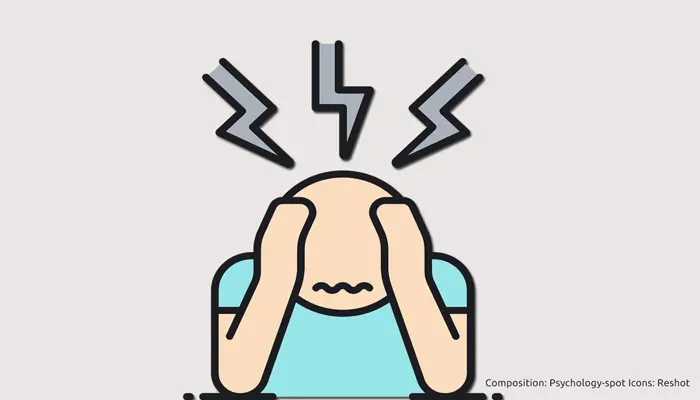
Feeling stressed is inevitable. Whether it comes from our work, family or friends, stress is a natural response that is activated when our psychological resources are overwhelmed by the situation we are going through. In fact, stress is not negative in itself. Its main mission is to activate us and give us an extra dose of energy so that we can deal with the problem.
However, in recent years stress seems to have become the public enemy number one. We are aware of the damage it causes to our body and the effects on our mind, so we try to combat it by all possible means. Despite this, this strategy does not always provide the expected results: sometimes we get stressed for the simple fact of being stressed.
When the mind becomes your worst enemy
Although there are different types of stress, it is no less true that the line between eustress and distress can be very fine and easy to cross without realizing it. In fact, perhaps one of the most frustrating characteristics of stress is its tendency to become a kind of snowball, using its own momentum to continually grow as it drags down everything in its path.
This feeling that things are out of control, together with our deep reluctance to the emotions that we consider negative, creates a framework in which stress becomes our enemy. As a result, when we detect it we declare war on it. We believe that feeling stressed is not okay. So we judge and criticize ourselves for it. But these thoughts do not exactly help us to relieve stress, quite the contrary, they often fuel tension, nervousness and frustration.
Thoughts about thoughts or emotions about emotions, a phenomenon that in Psychology is classified as “Type 2” because they are secondary to the primary thoughts or emotions, have the potential to cause more damage than we were initially worried about (Type 1 thoughts or emotions).
Being stressed because of feeling stressed is a vicious cycle. And generally, the more we think about it or the more we try to fight it, the more this discomfort will increase because we will be giving it disproportionate importance. When stress occupies all of our attention, we are not only able to appreciate the other positive things in life, precisely those that could help us reduce that stress.
Compassion as a weapon against stress
Of course, that doesn’t mean we should turn a deaf ear and ignore the signs of stress, allowing it to build up to be harmful. However, adopting another attitude could prevent us from becoming stressed just for the sake of being stressed.
We all deal with setbacks, challenges, and problems differently. Instead of beating yourself up for stress, offer yourself compassion. Stress is not 100% negative. In fact, it can be a sign that you are growing, challenging your limits, stepping out of your comfort zone, or learning new things about yourself or the world.
Stress can be the result of acting at the limit of our abilities, which is precisely that area where growth occurs. That can cause tension and discomfort, but it can also make us wiser and more resilient. If the discomfort you are experiencing is aligned with your values and goals, that stress is probably not as bad as you think, unless it really causes you great discomfort and becomes a hindrance rather than a helper.
In any case, there is no point in punishing yourself or berating yourself for being stressed. Instead of telling yourself that you shouldn’t be stressed or judging those emotions as useless, try to treat yourself with compassion. Compassion is not telling yourself that everything is fine and patting yourself on the back as if nothing is wrong, but telling yourself that you are doing the best you can with the resources available.
Compassion is not spoiling your inner child, but speaking kindly to yourself and offering you the support you need in difficult times. Compassion involves taking note of how you feel and assuming that it may be perfectly normal. In fact, psychologists from the universities of Toronto and California found that the simple fact of accepting our mental experiences reduces the discomfort they cause, especially stress.
When you treat yourself with compassion, you do not add more tension to a stressful situation, but rather create a space of acceptance and inner serenity where stress begins to melt away. Then the magic can happen: when you stop worrying about being stressed, the tension eases and the stress subsides, or at least lessens in intensity. It is a change of perspective that is worth it.
Source:
Ford, B. Q. et. Al. (2018) The Psychological Health Benefits of Accepting Negative Emotions and Thoughts: Laboratory, Diary, and Longitudinal Evidence. J Pers Soc Psychol; 115(6): 1075–1092.



